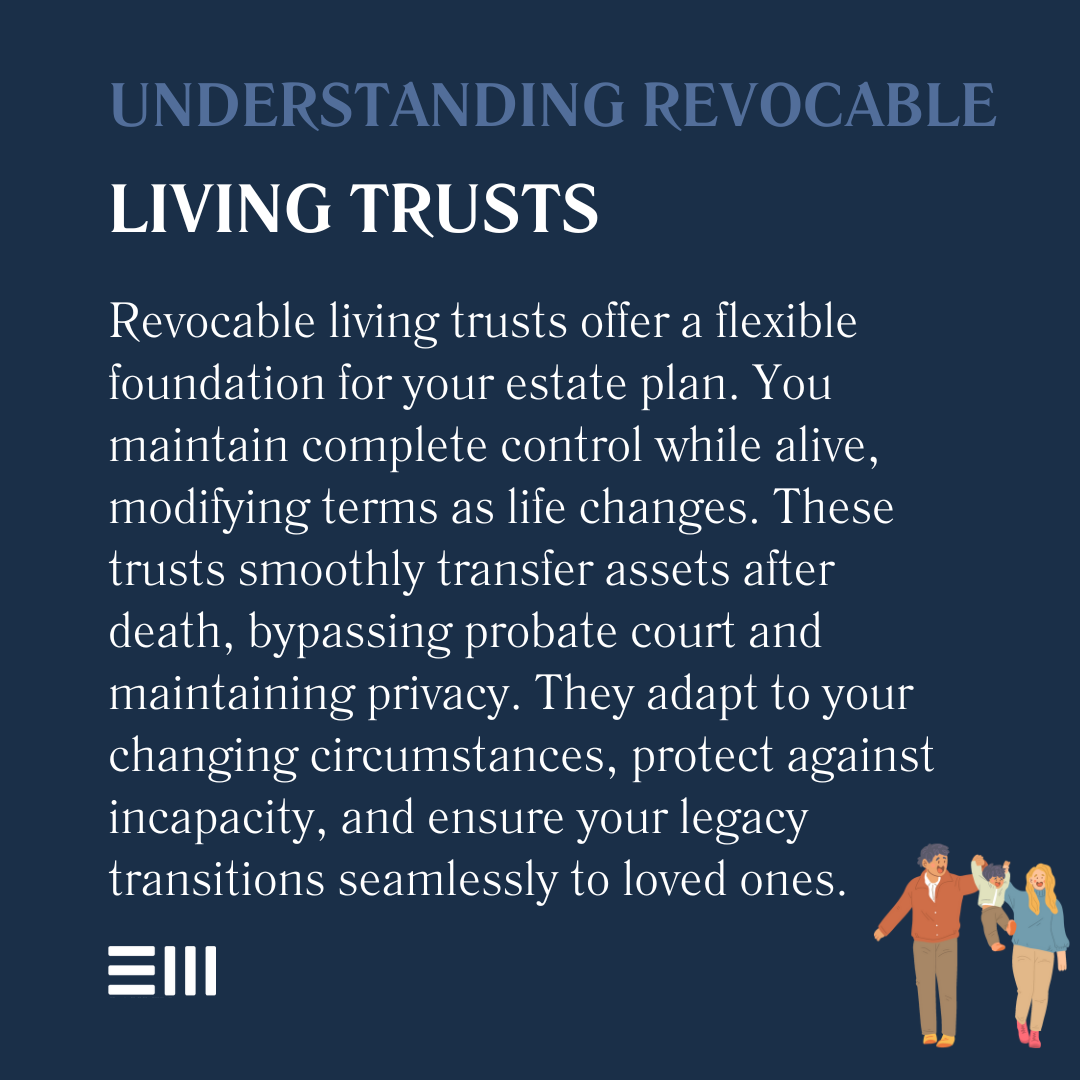Picture the moment your great-grandfather handed down something he loved and cherished—not just the physical item itself, but the stories, the responsibility, and the family legacy it represented. Today's inheritance stories weave far more complex tales.
A grandmother's carefully structured trust helps her granddaughter complete medical school debt-free. A father's special needs trust ensures his son receives exceptional care long after he's gone.
A business owner's succession trust smoothly transitions her life's work to the next generation while protecting jobs and family harmony.
Beyond mere asset distribution, trusts craft these living legacies. They transform basic inheritances into powerful tools that protect, nurture, and empower future generations.
Whether preserving a family business spanning three generations, protecting a child with unique healthcare needs, or ensuring your philanthropic vision continues touching lives for decades to come, the right trust structure turns your intentions into lasting impact.
Understanding Trust Fundamentals
Every trust serves as a unique tool in your estate planning toolkit. Before exploring specific types, let's understand how trusts protect your legacy and provide advantages that wills alone cannot offer.
A trust creates a legal relationship where assets are held and managed for specific beneficiaries. The grantor (you) transfers assets to a trustee, who manages them according to your instructions. This arrangement offers tax benefits, privacy, and control over asset distribution.
These fundamental elements create the foundation for more specialized trust arrangements. Understanding these basics helps you choose the right trust for your situation.
Revocable Living Trusts
A revocable living trust offers flexibility while maintaining control of your assets during your lifetime. This versatile trust type serves as the cornerstone of many estate plans.
Key Features:
- Maintains your control over assets;
- Allows modifications during your lifetime;
- Avoids probate process;
- Provides privacy for asset transfers;
- Enables smooth transition after death;
- Accommodates changing circumstances; and
- Includes provisions for incapacity.
These features make revocable living trusts particularly valuable for individuals who want to maintain control while planning for the future. The flexibility to modify the trust as circumstances change provides peace of mind.
Irrevocable Trusts
Irrevocable trusts create permanent arrangements that offer powerful tax benefits and asset protection. These trusts serve specific purposes in comprehensive estate plans.
Features and Benefits:
- Removes assets from taxable estate;
- Provides asset protection;
- Creates lasting legacy arrangements;
- Offers tax advantages;
- Protects government benefit eligibility;
- Ensures specific asset uses; and
- Guards against future claims.
Understanding these permanent arrangements helps determine if they align with your estate planning goals. The trade-off between control and protection often makes sense for specific assets or purposes.
Specialized Trust Types
Different life situations and goals require specialized trust arrangements. Let's explore trust types designed for specific purposes.
- Special Needs Trusts;
- Charitable Remainder Trusts;
- Generation-Skipping Trusts;
- Qualified Personal Residence Trusts;
- Life Insurance Trusts;
- Spendthrift Trusts; and
- Educational Trusts.
Each specialized trust type serves unique purposes and offers specific advantages. Matching the right trust to your situation ensures optimal benefits for you and your beneficiaries.
Common Questions About Alabama Trust Planning
Alabama trust planning raises important questions for many families.
Here are answers to help you understand your options better.
How Do I Choose Between Different Trust Types?
Consider your primary goals: probate avoidance, tax reduction, asset protection, or special needs planning. Review your assets, family situation, and tax exposure.
Each trust type serves specific purposes—revocable living trusts offer flexibility and probate avoidance, while irrevocable trusts provide tax benefits and asset protection.
Match trust features to your specific needs, considering factors like asset types, beneficiary circumstances, and long-term objectives. Working with an estate planning professional helps evaluate these factors systematically.
Can I Have Multiple Trusts in My Estate Plan?
Yes, many estate plans incorporate multiple trusts to achieve different objectives.
For example, you might combine a revocable living trust for general estate management with a special needs trust for a disabled child and an irrevocable life insurance trust for tax planning.
Each trust serves distinct purposes while working together cohesively. The key is to coordinate these trusts effectively to avoid conflicts or unnecessary complexity.
What Are the Tax Implications of Different Trusts?
Tax implications vary significantly between trust types. Revocable living trusts offer no immediate tax benefits since you retain control of assets. Irrevocable trusts can reduce estate taxes by removing assets from your taxable estate.
Charitable remainder trusts provide income tax deductions while benefiting charities. Generation-skipping trusts help minimize taxes when leaving assets to grandchildren. Understanding these tax implications helps optimize your overall estate tax strategy.
How Do I Fund a Trust?
Funding involves transferring assets into trust ownership. For real estate, this means recording new deeds.
For financial accounts, you'll retitle them in the trust's name. Some assets, like retirement accounts and life insurance, use beneficiary designations instead. Personal property requires assignment documents.
Proper funding is crucial—an unfunded trust provides no benefits. Create a comprehensive funding checklist and work systematically through each asset type.
Who Should Serve as My Trustee?
Your trustee must be trustworthy, financially responsible, and capable of handling complex tasks. Consider their financial experience, availability, impartiality, and relationship with beneficiaries.
Family members often serve as trustees for simpler trusts, while professional trustees better suit complex situations or when family dynamics create conflicts.
You can also name co-trustees, combining family knowledge with professional expertise.
Can I Change My Trust Later?
Revocable living trusts allow complete flexibility to modify or revoke them during your lifetime. You can change beneficiaries, adjust distribution terms, or add and remove assets.
However, irrevocable trusts generally cannot be changed after creation, though some states permit modifications under specific circumstances.
Consider this permanence carefully when establishing irrevocable trusts. Always document trust changes properly to ensure validity.
Create Your Trust Legacy Today
Your trust choices shape your family's future security. Our experienced team helps you select and establish the right trusts for your goals.
Contact us to start protecting your legacy with confidence.


